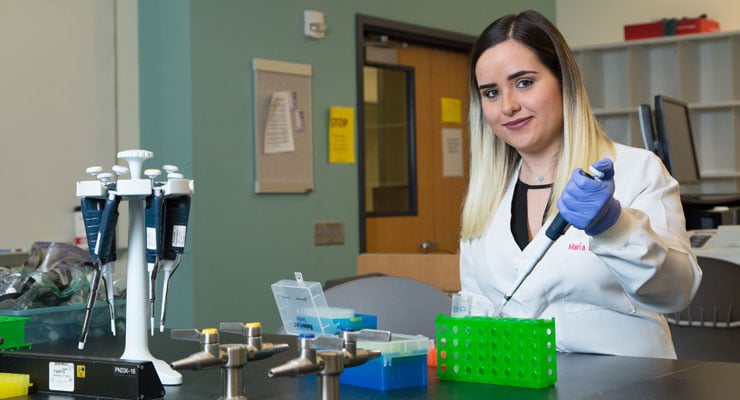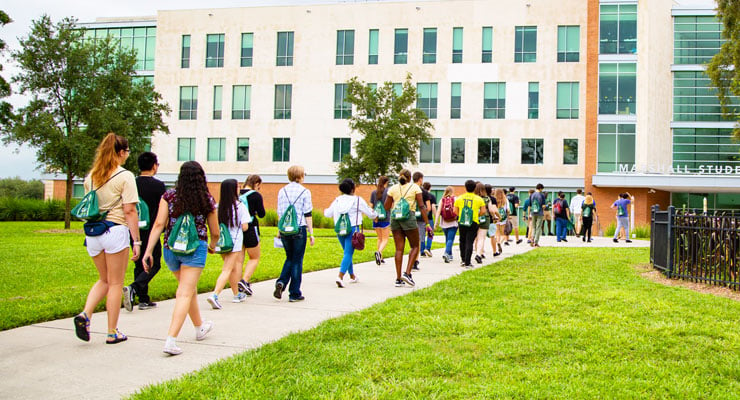Finding Colleges That Fit Your Students: Tips for Counselors
By Joe Emerson | Last Updated: Mar 5, 2025

For a counselor, getting a student in the right school is about the long game, one that begins with the first encounter and, ideally, plays out steadily throughout high school. It’s about engaging the parents and the student, learning the student’s strengths and weaknesses, abilities and interests; then, based on the academic record you help build, overseeing school selection and enrollment. The trickiest part of the admissions game is that the instructions must be customized for each individual when finding colleges that fit for your students.

Know Your Students, Their Parents, Your Tools, Your Turf
Counselors engage in a year's-long process that positions students for a postsecondary education. The process has myriad elements, and four of them qualify as the counselor’s long-running homework assignment:
Know Your Students
The minute that high school freshman first walks into your office, the learning process begins – yours and theirs. You start what amounts to a study of the person to gauge potential. Over time, their academic performance and personal accomplishments give you the metrics needed to assess scholastic potential and match the student to the college. Along the way, you learn who they are, their skills, talents, hopes, fears, and dreams.
Your job is to make sure they know who they are, too. Get that done, and the student will be well-positioned to make decisions that will shape their academic horizon and life.
If college looks like the obvious choice, you put them on a postsecondary path early. That means showing them what you can do for them. The number crunchers have pie chart presentations of college planning support activities, from most to least time-consuming:
- Course selection and scheduling
- Explaining the application process and your role in it
- Helping kids find schools that fit
- Helping with financial issues such as scholarships
- Helping with standardized testing and exploring career options
Know Their Parents
Communicating with the student’s parents is one of the best ways to identify circumstances shaping the youngster and glean information that only a parent has. It’s also a must-do to ensure the parents are on the student’s college team and fully informed on options and goals.

Know Your Tools
Your best tools are your college education and work experience, but there are a lot of other tools in the counselor toolbox, including:
- American School Counselor Association and its webinars
- Professional support from the National Association for College Admission Counseling
- Online iteration of the Fiske Guide to Colleges, Fiske Interactive
- A free schools list designed for counselors, Collegelistswiki.com
- Software such as Naviance to help kids make college choices
- Tools that come with the Common Application
- Rugg’s Recommendations on almost 1,200 colleges
- Data compiled by Colleges That Change Lives on schools for deserving kids who aren’t A-team material
- School rankings on Niche
That’s a tiny part of the digital toolbox for counselors. A wealth of additional information is at your fingertips and waiting to be tapped.
Know Your Turf
Local and regional schools have to be on counselors’ radar early, along with schools that commonly appear on their students’ target lists. Time and exposure will help you build a database/files that will be invaluable to students.
And when time allows, reaching out to school admissions offices for contact information, touring colleges, and attending and holding college fairs will help you load up and customize your counselor arsenal.
You’re not in this alone. Colleges put a lot of time and money into making their admissions resources readily available.

Tips for Students on Finding Schools that Fit
Beyond letting students know when to start their college search and where to find good search tools online (CollegeXpress, College Board’s Big Future, Peterson’s, My College Options, and The Princeton Review, to name a few), there are critical and quite practical issues to address when choosing a school.
Be sure your students understand the implications of:
- Finances. What financial aid and scholarship opportunities are they looking for?
- Size. Is the student interested in the personal attention provided at a small college or the numerous opportunities available at a large university?
- Location. Rural or urban? Proximity to services and amenities? How far from home?
- Majors and classes. Does the school have what they want or are likely to want? Availability? Student-to-instructor ratio?
- Housing. Living arrangements can make or break the experience.
- Extracurricular activities. Do they have what the student wants?
- Atmosphere. Where on the Niche listing of Colleges with the Best Student Life in America do they want their school to be?
If you want to add the University of South Florida to your counselor database, the Office of Admissions is always ready with information and answers. Contact us online or by phone, 813-974-3350.


